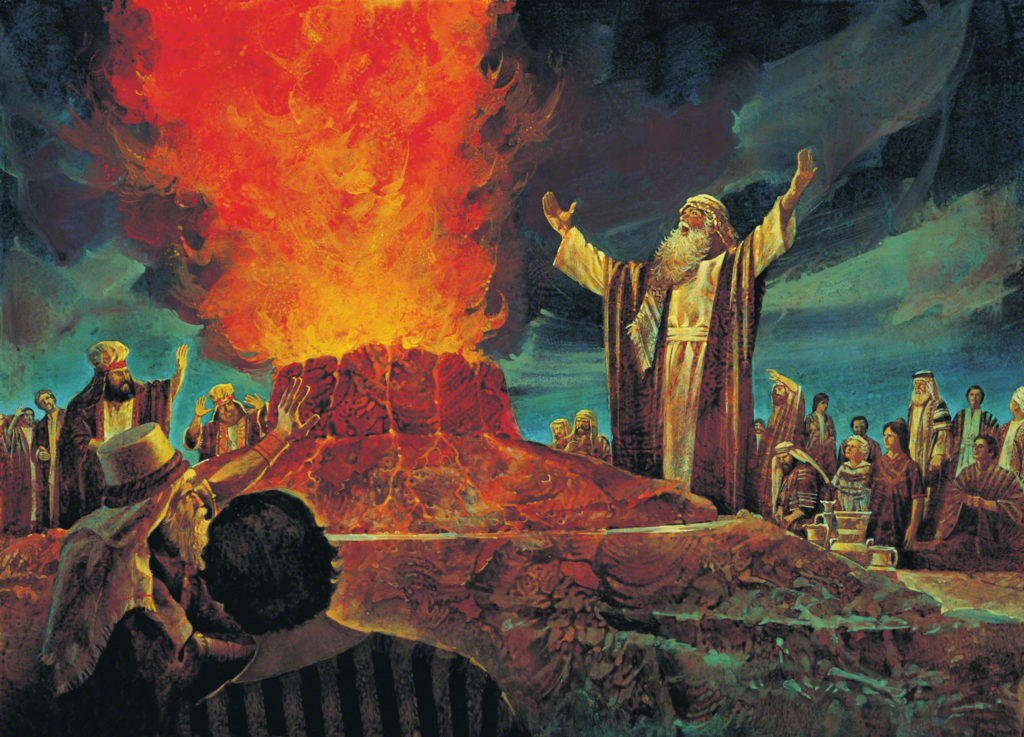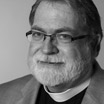For years I sat under my father’s preaching at St. James Newport Beach CA, listening to the prayer he prayed before every sermon until I took it to heart:
Come Holy Spirit come…Come as the wind that blows, come as the fire that refines, come as the dew that refreshes. Convict, convert and consecrate us until we are wholly yours
I pray that same prayer before every message, every teaching, every sermon. Not simply as an homage to my father, but as a cry from my heart to my Heavenly Father. I need the Holy Spirit. Our churches need the Holy Spirit. Our Province, the Anglican Church in North America, needs the Holy Spirit. In fact, our whole Communion of Anglican Churches needs the Holy Spirit!
I know I need fresh anointing of the Holy Spirit to increase my faith and trust in Christ, and to experience greater boldness and fruitfulness in fulfilling Christ’s Great Commission (see Acts 4:23-31 and Ephesians 5:18 on why we need to be filled more than once). A dear brother in Christ reminded me this last week, from Acts 13:2 “While they were worshipping the Lord and fasting, the Holy Spirit said, ‘set apart for me Barnabas and Saul for the work to which I have called them…” Isn’t this a model of what Jesus promised would happen in Luke 24:49 and Acts 1:8? Significantly, this turning of Paul and Barnabas west can be seen as the beginning of the conversion of the West, and even the initiation of Western civilization. Is there any more relevant precedent than this for our own engagement of a neo-pagan, aggressively secular culture in North America? Do we not need this power beyond ourselves, the Holy Spirit, so that God can change us from the inside out, to bring personal authenticity and conviction to the transforming love of Jesus Christ with which we are seeking to reach North America?
More than that, as we face a world that is threatened by aggressive secularism, religious pluralism, and radical Islam, do we not need the Holy Spirit to give us inspiration, conviction and courage to make disciples “of ALL nations” (Matt. 28:16-20), especially when doing so may cost us our very lives? Do we not need that power beyond ourselves, to change ourselves, so that we can have the same Christ-like character as our Coptic Christian brothers and sisters who continue to forgive those that kill their families and friends for professing Christ?
And do we not need the Holy Spirit, “The Spirit of truth [who will guide us] into all truth,” (John 16:13) to address the question that is at the heart of the struggle for the soul of Anglicanism, as former Archbishops Drexel Gomez (West Indies) and Maurice Sinclair (Southern Cone) wrote back in 2001 while the Anglican Communion was beginning to unravel:
“How, in the midst of the pressures of time, do the Churches [of the Anglican Communion] both remain faithful to the teaching and practice of the Apostles and yet witness relevantly and in context to the truth of the Gospel among these changes and chances of history?” To Mend the Net (Ekklesia, 2001)
As I have written elsewhere I am also a canon lawyer. I have a passion for seeing the Anglican Communion move forward with the same classically confessional, conciliar and Anglican decision-making structures that we find at every other level of the Churches of the Anglican Communion—except at the Global level of Communion governance! I’ve just published a book, Anglican Conciliarism: The Church Meeting to Decide Together which sets out a path forward for the Anglican Communion, in a way that honors both the clear authority of God’s word and the need for missional relevance now. I care about constitutions, canons, the theology and structures of the Church like a good canon lawyer should.
All these things are a means, but not the end. As another friend reminded me, they are like the 12 stones that Elijah built into an altar on Mt. Carmel, where the fire of God then fell (another symbol of the Holy Spirit!) initiating a great revival for the nation Israel (I Kings 18:30-39). It was the fire-falling that turned the people of Israel away from the Baals and Asherah, but Elijah had first to repair the altar of the LORD with those stones.
I believe there is a lesson here. The concern for repairing the structures of the Anglican Communion is surely right and a priority. But as in Elijah’s time, those structures are always in waiting for the cleansing fire of God, the Holy Spirit, to fall upon his people first, who then extend His Kingdom to others. Charles Hummel reminds us of this same Biblical perspective in his book Fire in the Fireplace (IVP, 1978) The church needs both the fireplace (structure and order) and the fire (the outpouring of the Holy Spirit on every believer and church). Without the fireplace, the fire can rage out of control. We Anglicans are great at the fireplace stuff—the stuff of constitution, canons, ecclesial structures, etc. But, as Hummell also notes, without the fire the fireplace is simply a collection of bricks or stones that are cold and dead.
How then can we welcome the revival fire and power of the Holy Spirit, even while we build the altar or “fireplace” to receive God’s cleansing and renewing fire?
I found some guideposts in today’s lessons from the Daily office, from Joshua 3 and Matthew 3-4:11. Both recount extraordinary outpourings of God’s supernatural power. For the Israelites, it was the power of God that heaped up the waters of the river Jordan allowing the people to cross over into the promised land. In Matthew 3-4, it was the heaven’s opening and the Holy Spirit falling at Jesus’ baptism in that same Jordan river, with God sundering the heavens brazen and silent for hundreds of years with his voice “This is my beloved Son, in whom I am well pleased.” (Matt. 3:17).
In Joshua 3, the people were commanded to fix their eyes on the Ark of the Covenant and to sanctify/consecrate themselves to the Lord (vv.3-5). In Matthew, God specifically calls peoples’ attention to Jesus. And what about his baptism—why did Jesus receive baptism if he was sinless? As Michael Green observes, “by submitting to baptism, Jesus acknowledged God’s claim on him as on others for total consecration of life and holiness of character.” (The Message of Matthew, IVP 2000. Emphasis added).
We welcome the Holy Spirit by fixing our eyes on Jesus even as we build the structures of this new Province and Communion. Like Jesus, and like the Israelites, we consecrate our lives to God and his purposes—not here and there, but always and in all circumstances. We pursue holiness of character. We have the mind of Jesus Christ in our minds, our churches, in all our decision making (Phil. 2:5-11)—the mind and manner of Christ himself, whose humble and self-sacrificing descent into greatness results someday in all knees bowing and all tongues confessing that He is Lord. Nothing less than this will suffice.
John tells us that God gave Jesus the Holy Spirit without limit (John 3:34). It’s no coincidence Jesus was utterly ready to receive all of God’s kingdom, power and glory. Are we ready for that kind of Christ-like surrender and holiness of life? What attitudes of the heart, what actions, do we need to confess? Where do we need to repent?
If we want to welcome the Holy Spirit in the same way that Christ did, and for all the reasons we need him—for holiness of life, for boldness in sharing the transforming love of Jesus Christ with others, for Godly discernment of truth and relevance in the Church for mission to all nations, nothing less than this will suffice. We need a visitation of the Holy Spirit, but are we ready for his habitation in our hearts, our minds, our hands, our leaders and our churches?
Come Holy Spirit come…Come as the wind that blows, come as the fire that refines, come as the dew that refreshes. Convict, convert and consecrate us until we are wholly yours.
The Rev. Canon Phil Ashey is President & CEO of the American Anglican Council.



